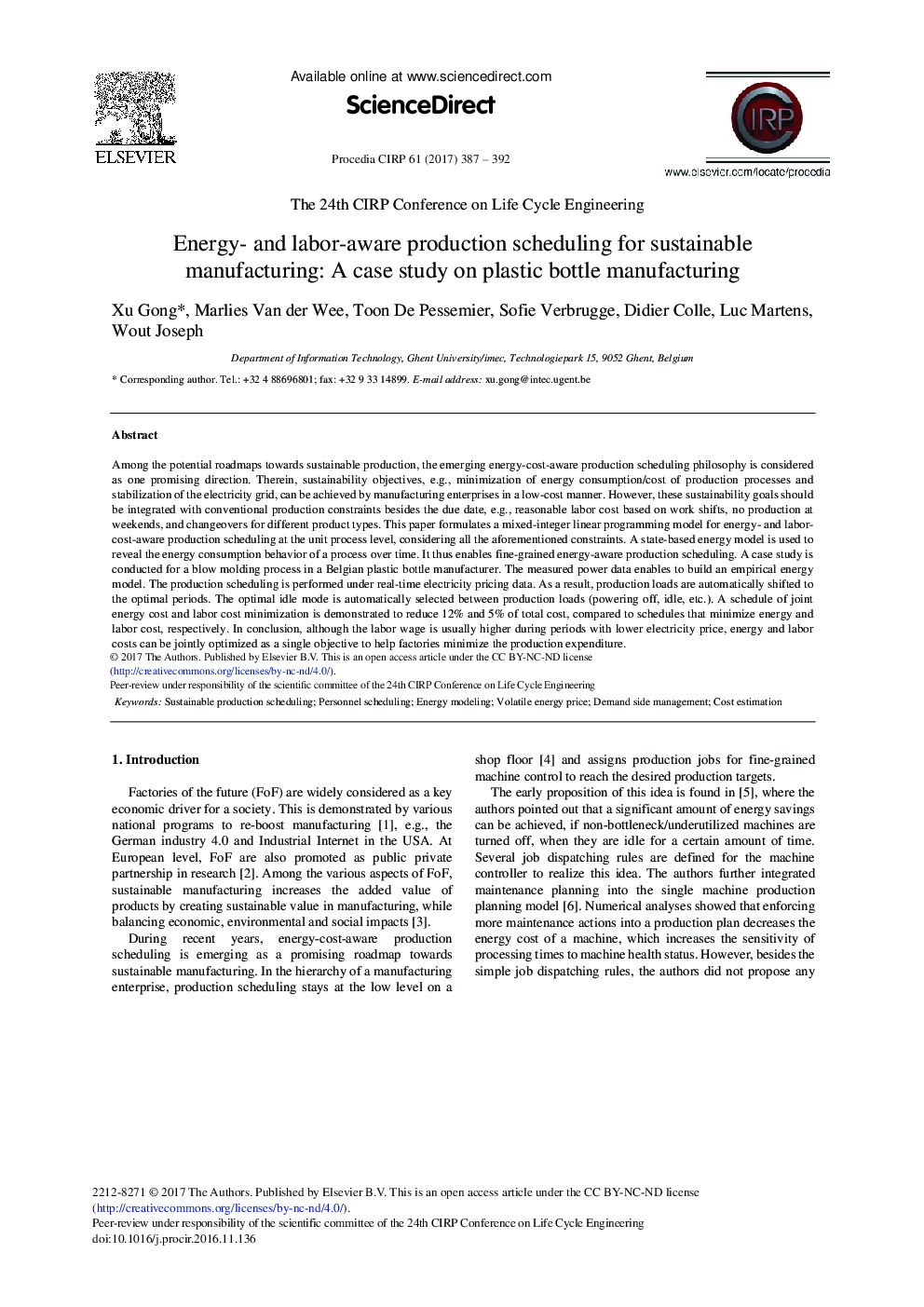| Article ID | Journal | Published Year | Pages | File Type |
|---|---|---|---|---|
| 5470537 | Procedia CIRP | 2017 | 6 Pages |
Abstract
Among the potential roadmaps towards sustainable production, the emerging energy-cost-aware production scheduling philosophy is considered as one promising direction. Therein, sustainability objectives, e.g., minimization of energy consumption/cost of production processes and stabilization of the electricity grid, can be achieved by manufacturing enterprises in a low-cost manner. However, these sustainability goals should be integrated with conventional production constraints besides the due date, e.g., reasonable labor cost based on work shifts, no production at weekends, and changeovers for different product types. This paper formulates a mixed-integer linear programming model for energy- and labor-cost-aware production scheduling at the unit process level, considering all the aforementioned constraints. A state-based energy model is used to reveal the energy consumption behavior of a process over time. It thus enables fine-grained energy-aware production scheduling. A case study is conducted for a blow molding process in a Belgian plastic bottle manufacturer. The measured power data enables to build an empirical energy model. The production scheduling is performed under real-time electricity pricing data. As a result, production loads are automatically shifted to the optimal periods. The optimal idle mode is automatically selected between production loads (powering off, idle, etc.). A schedule of joint energy cost and labor cost minimization is demonstrated to reduce 12% and 5% of total cost, compared to schedules that minimize energy and labor cost, respectively. In conclusion, although the labor wage is usually higher during periods with lower electricity price, energy and labor costs can be jointly optimized as a single objective to help factories minimize the production expenditure.
Related Topics
Physical Sciences and Engineering
Engineering
Industrial and Manufacturing Engineering
Authors
Xu Gong, Marlies Van der Wee, Toon De Pessemier, Sofie Verbrugge, Didier Colle, Luc Martens, Wout Joseph,
